
TOTENTANZ
Morgen ist die Frage
(stage version)
Marcos Morau, La Veronal
PREMIERE
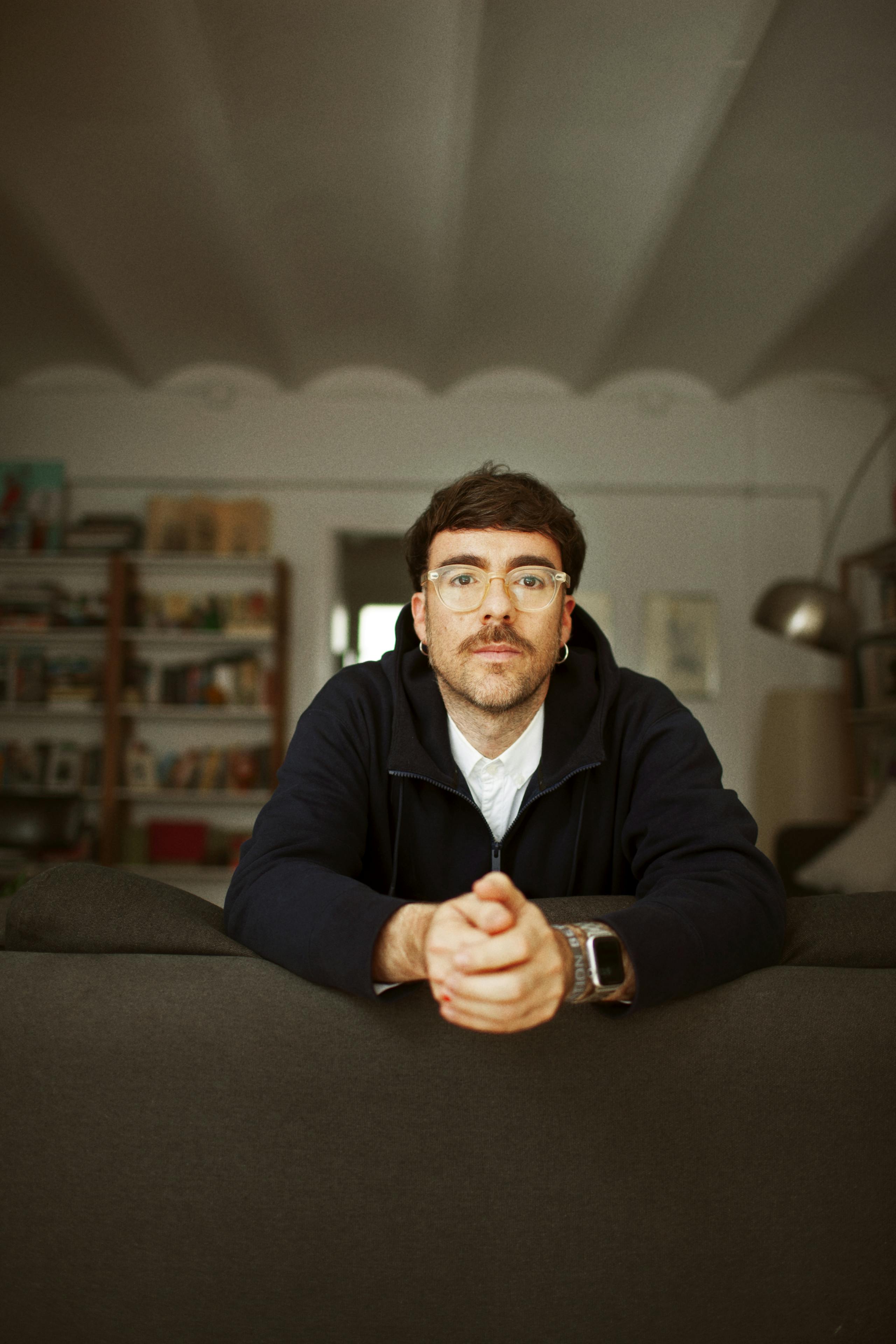
Marcos Morau, © Albert Pons
Barcelona is a contradictory city that lives and thrives on its differences. Visionary and impossible like the Sagrada Familia. Clichéd and sad in those moments when it conforms most to the Las Ramblas stereotypes. That light that seems more intense than the Mediterranean, and a local grandeur that gradually dissolves into the liquid reality. The Columbus statue gazing into the distance, while around him we are all questioning these patriarchal pedestals. Between New York and Algiers, a complex wonder of layered mythologies seemingly crafted to interlock perfectly with each other, transcending distances and evoking an idea. The idea of a city, caught between times, emotions, and different stories, yet all converging towards a sense of uniqueness, even though in continuous movement. Here, in Barcelona, in 2005, Marcos Morau, an artist born in Valencia in 1982, founded the La Veronal dance company (named after a sedative, an intriguing detail). For the past twenty years, La Veronal has been pushing the boundaries of dance experimentation and exploring the intersection of different artistic practices, with an avant-garde spirit that continually questions itself, and as a result, often has the ability to anticipate perceptions and interpretations of contemporary dance dynamics, as well as those of society.
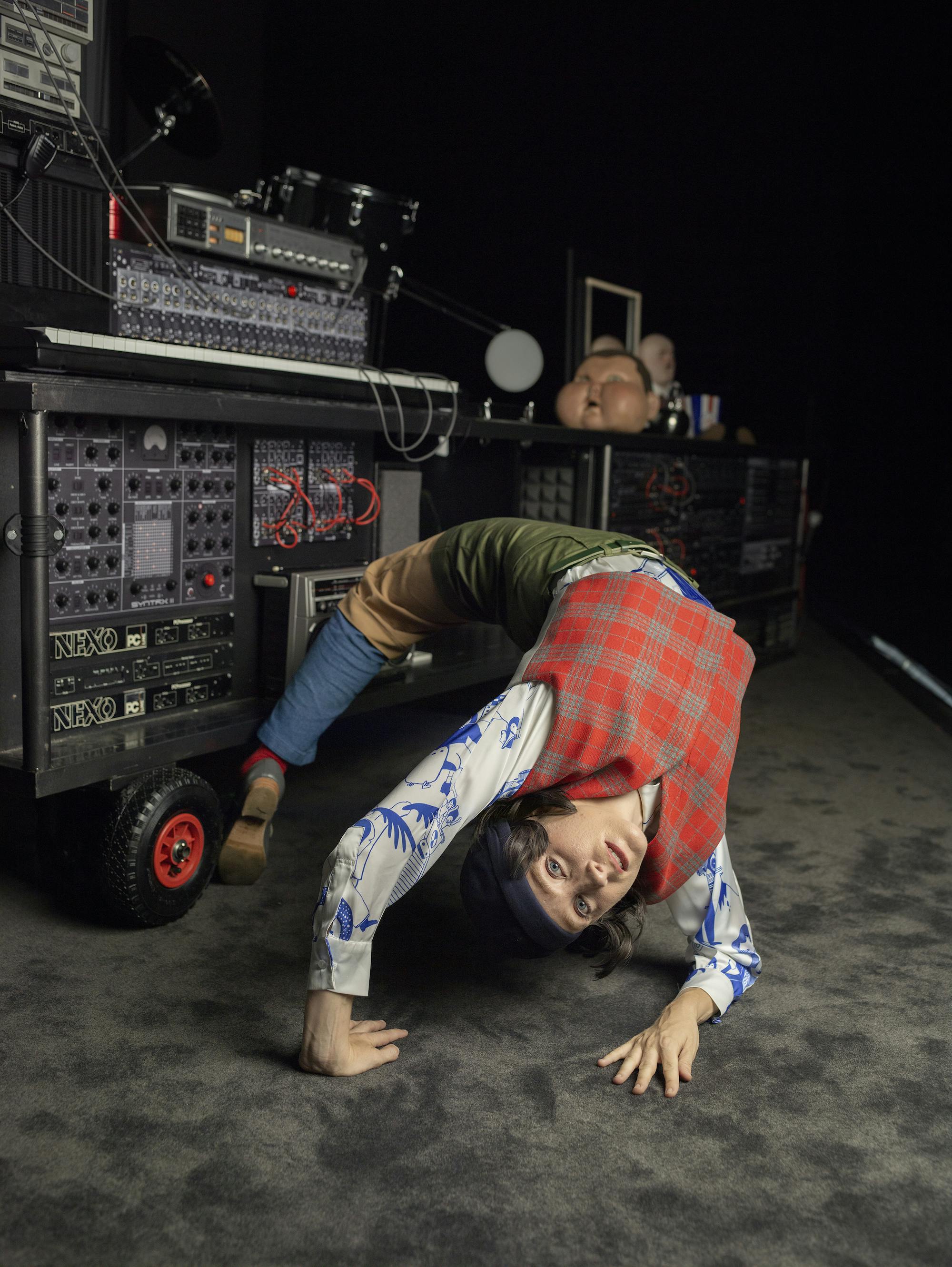
Firmamento, © Albert Pons
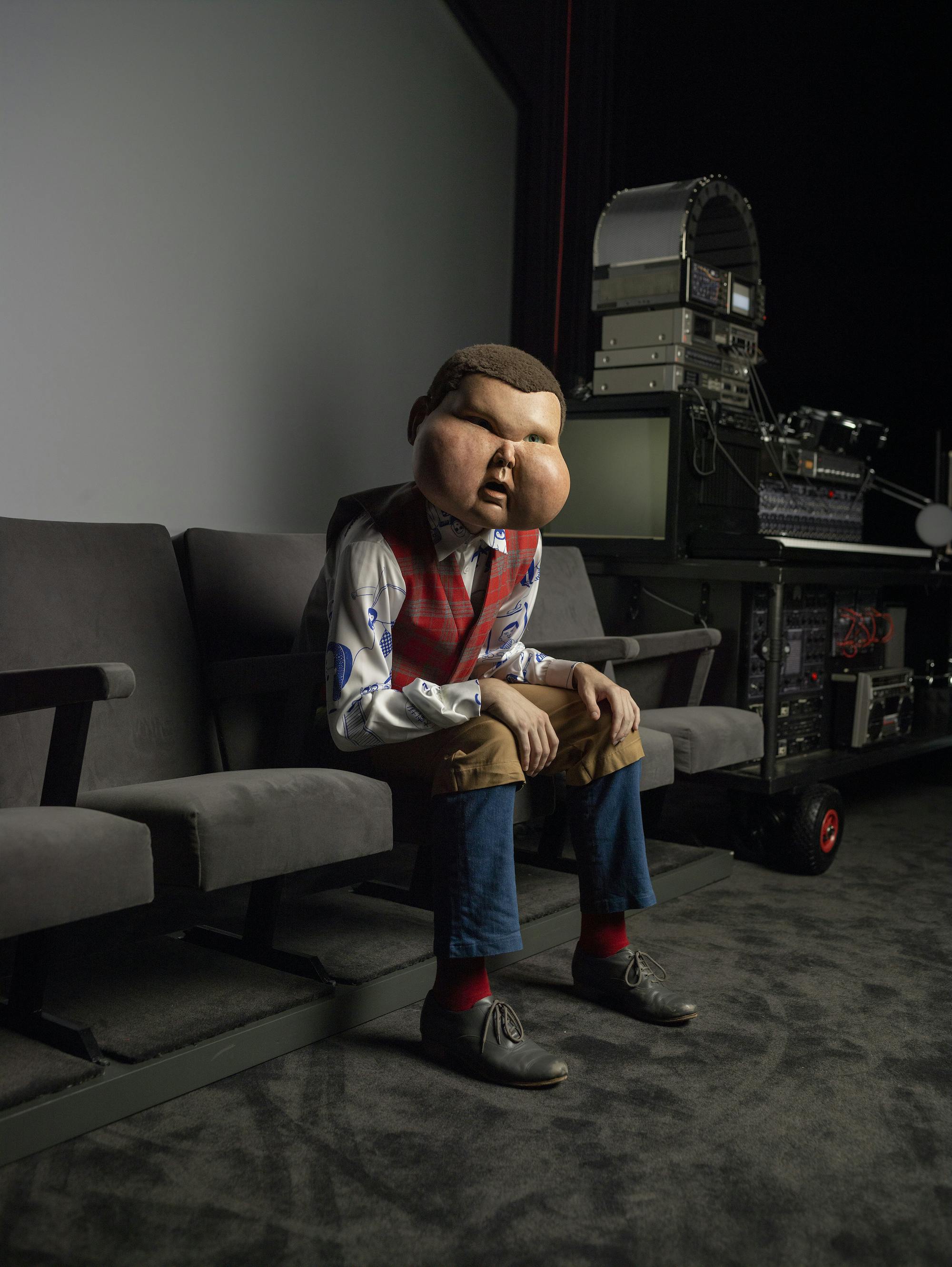
Firmamento, © Albert Pons
When I ask him about his idea of choreography, Morau makes a point of telling me, “I am not a dancer… I've never tried out the movements on my own body. I've always been fascinated by the playfulness and creativity around them. To me, being a choreographer is synonymous with being a creative or an artist who seeks to translate our world into images, situations, mise-en-scènes, or dance movements.” Round glasses, a moustache, and darting eyes, often above a gentle smile, Marcos talks about himself and his work with an ease that conveys reflection and a constant self-reasoning on how we think about art. “Dance is a good channel for me,” he adds, “because it's very fluid, it's very abstract, and it doesn't define anything concretely. There are no texts like in theatre, or other forms of shield or defence. Being a choreographer, in my opinion, represents the perfect balance between freedom and abstraction, an opportunity to talk about different contemporary topics. I believe that as an artist, I must make compromises with my time and try to narrate the kind of world, the kind of society we are creating. This compromise with the spirit of our times is part of my values as a choreographer.”
Like Barcelona constructing its plural identity, La Veronal’s performances often bring to the stage many voices, many bodies, and many pluralities that then converge towards something that is, in essence, the language of the company, its most incandescent nature – making it“one of the most important in the world,” according to numerous articles emerging from a quick online search of press reviews. “Dance is my chosen language,” the choreographer tells me, “and the world of theatre or operatic music are frameworks within which I have operated as an artist for the past decade, but they can be changed. Today, the boundaries separating different types of art are very fragile and fluid. I am convinced that we must completely overcome these boundaries, we must break them, to bring them closer together. Theatre, art, performance, and video: I use the stage as a battlefield where all these forms of expression can converge together. It’s 2024: in the past century, everything has been done, everything has already exploded in our faces. Today, we must try to harvest the legacy of the past and recognize that these new crises can also bring new opportunities for a different form of creation. I firmly believe in this concept.”
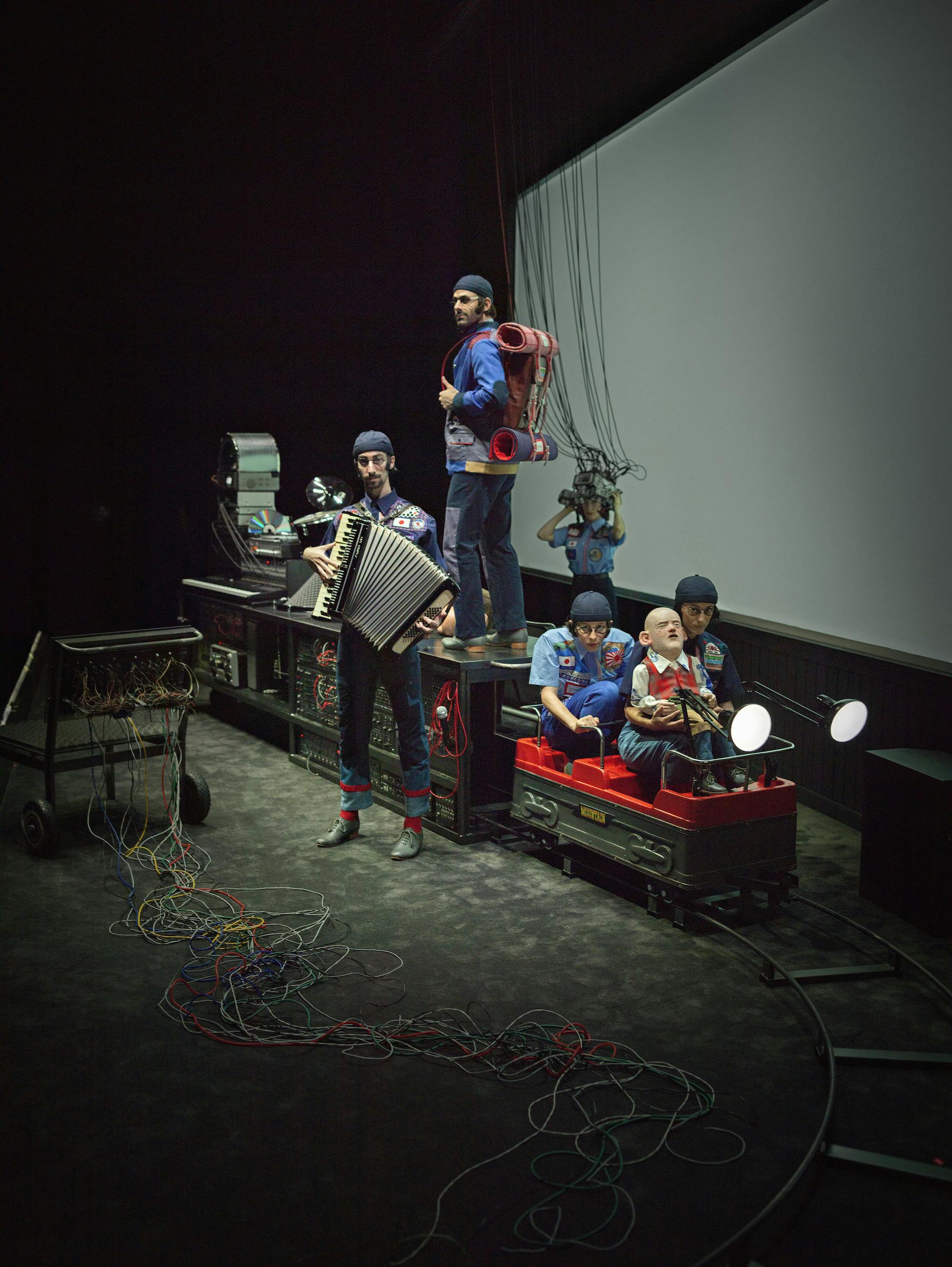
Firmamento, © Albert Pons
The present. This elusive chimaera, this place that is simultaneously the void of a hyper-digital society yet also the space in which a true idea of philosophical and artistic contemporaneity can become possible. Listening to Morau, who speaks with his precise English, slightly tinged by Spanish tones, you can sense the urgency of a confrontation with the present, with our way of existing within this temporal container, artificial in many respects and yet equally indispensable. “You cannot understand the present solely through one viewpoint,” he tells me, “you have to bring together many elements, because everything is connected. The link between the arts and society, politics, and everything else is everywhere, we see it every day in our lives. And expressing it purely through movement is not enough for me. I like to add words, lights, music, paintings... I’m not saying that all of this is necessary, but it is possible to do so, and I’m convinced that when you open yourself up to different suggestions, you take a path that, in my case, is the right one for me now.”
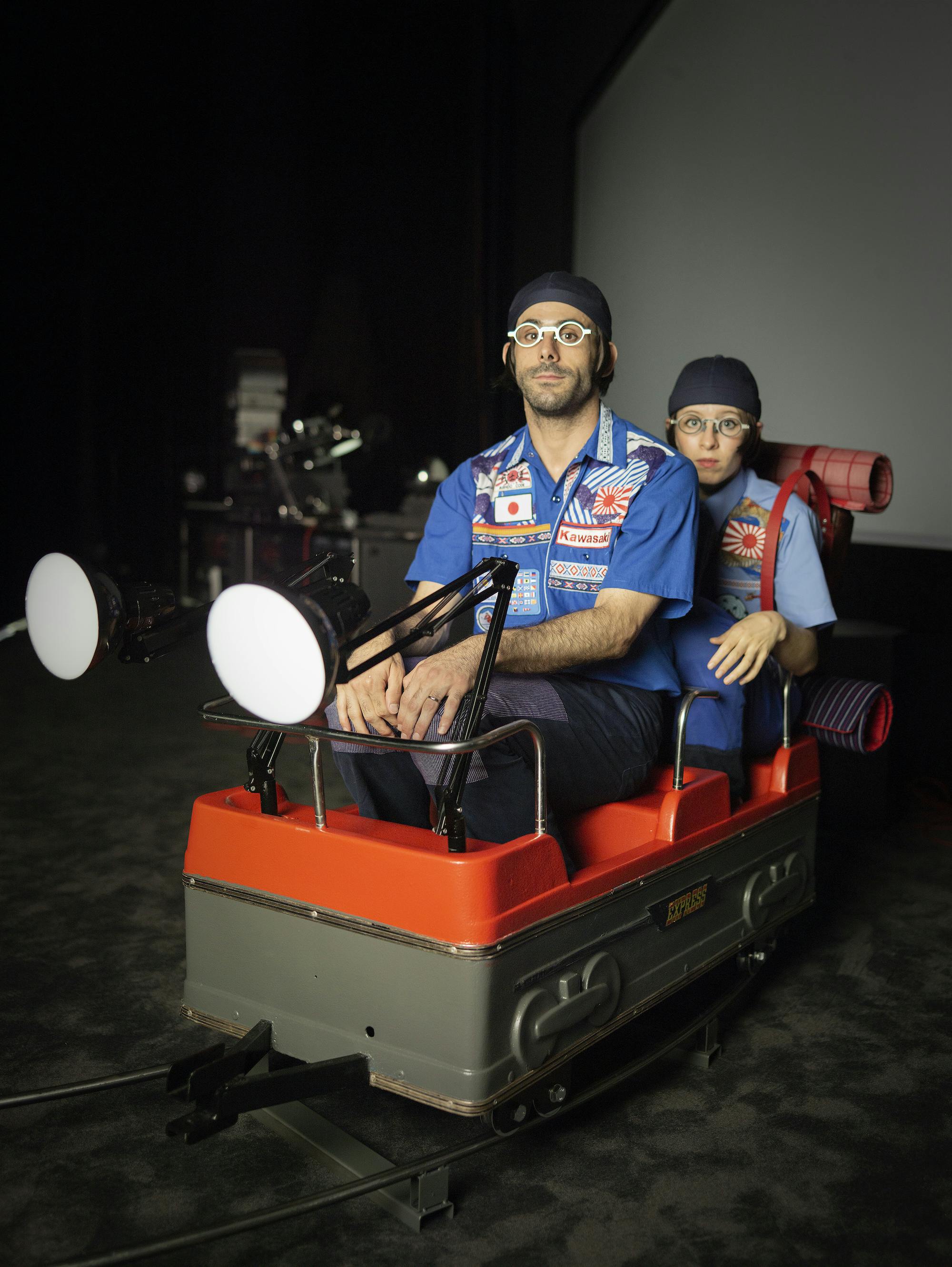
Firmamento, © Albert Pons
In La Veronal's performances, the performers sometimes act in unison, and sometimes intertwine in unexpected ways to create what is to all intents a layered, performed narrative, sometimes pure dance, but always with a tension towards something else, towards something that I can only define as “further”. And in this tireless pursuit, which sometimes may sometimes appear to border on obsession, the crucial key to action is the body, with all the layers it brings with it today. “It’s impossible to conceive the body outside of the context in which it moves,” explains Morau. “In the 21st century, the body is laden with meanings and echoes of what it means to be a woman or a man or to live different types of identities. The movement of dance is timeless and completely free, but when we talk about the body, we're talking about where we live, the context in which we find ourselves: the body takes on different nuances if we are in Italy or Spain, or in Senegal or Korea...The body has always been present in the history of art: in sculpture, in dance. While classical ballet dominated much of the last century, today, the body is experiencing many changes, embracing diversity, and with no more boundaries, there is the real possibility of finding many answers. Today, you can change your body, it’s no longer an absolute and immutable value, you can adapt it to your time, then decide to be other... Today, the body is a sort of machinery that surrounds you, but you have the ability to control it, to make it closer to who you really are.
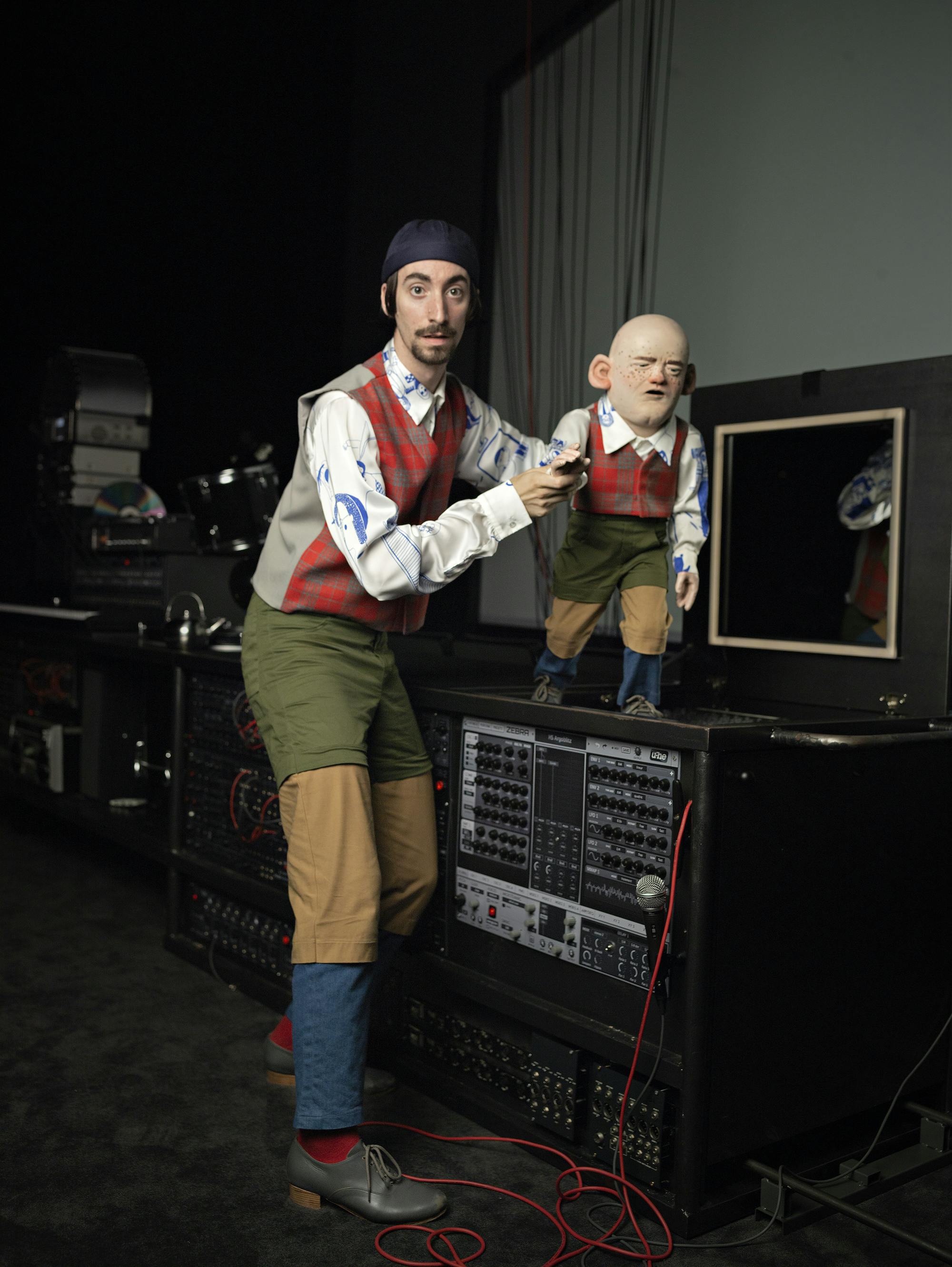
Firmamento, © Albert Pons
What is the trite term used by newspapers? Oh yes, this is all very ‘woke’ but in this case, it would be mean-spirited and ultimately false because La Veronal has an articulate, profound approach that places all body forms at the centre of a genuine reflection revolving around an idea of freedom, which is then obviously put at the service of choreographic and artistic results, but never loses its nature as a fundamental and foundational element. “In my work and within my company, the body is the channel for expressing ideas, emotions, and thoughts. I use them together with stage designs, texts, and images to achieve a perspective that is truly mine, reflecting my vision of time. I work with different bodies: there are professional dancers, but also ordinary people who are less confident with movements, in order to explore how to change the way we move, even based on how the brain reacts to movements at different ages. My creativity also comes from here.”
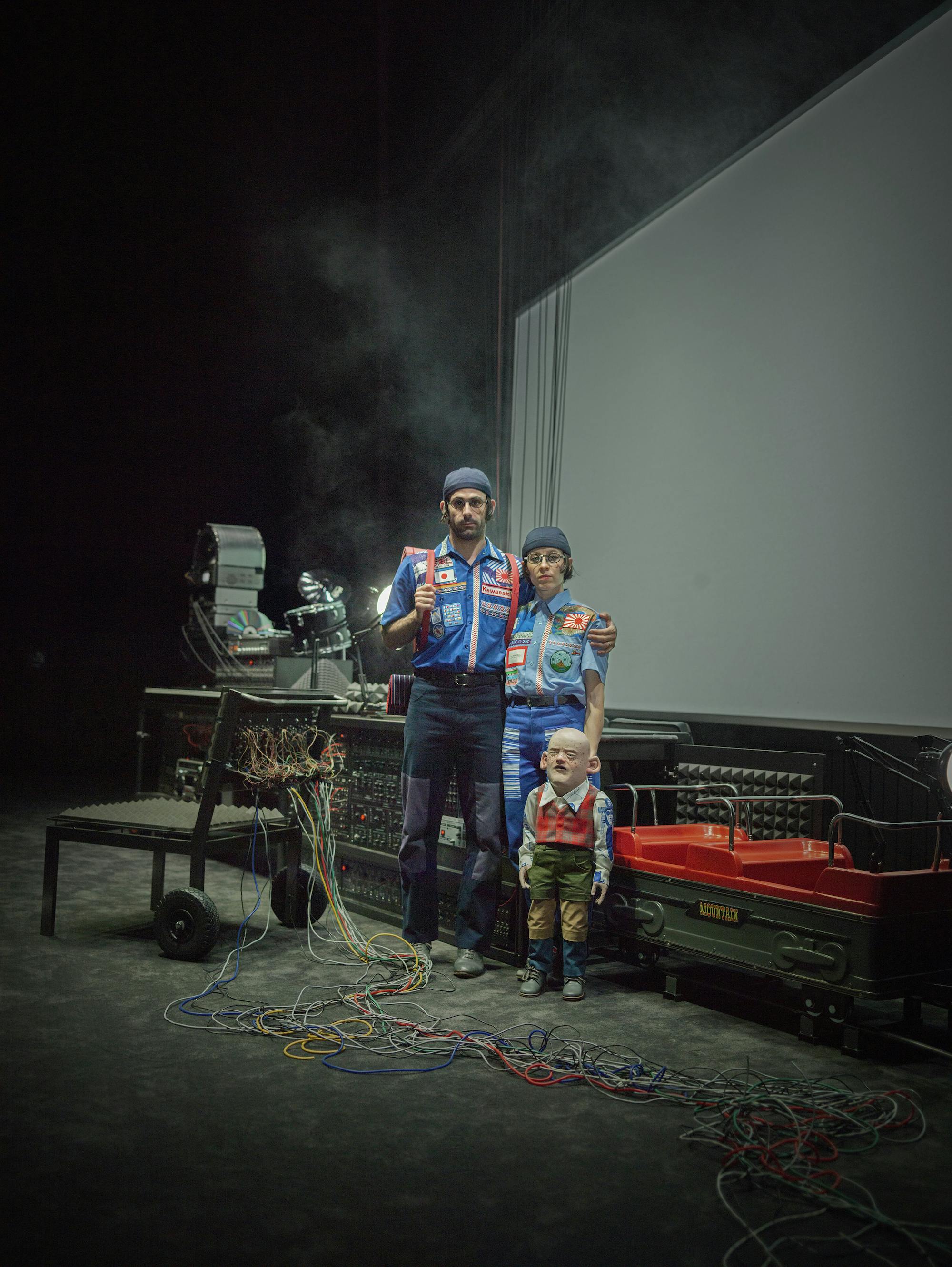
Firmamento, © Albert Pons
Marcos Morau has been described by many as a “visionary” artist, a term so overused in journalism that it has lost almost all currency in contemporary artistic discourse. But then if we go beyond PR-driven communications, we discover that this adjective raises a genuine question: what is the artist’s vision today? “For me,” says Marcos, “it means trying to look ahead, attempting to understand how artistic language will evolve in the coming years. As an artist, I want to be ahead, not in the sense of being the first, but in trying to anticipate. Art has always tried to walk a bit ahead of history and society. When they label you as visionary, it means that you are aware of what’s happening in the world and of how societal norms, as well as creativity and art in general, are evolving, moving forward. Everything is constantly changing, and we must be able to keep up with these changes because standing still means death. This movement of change is part of our natural organic life.”
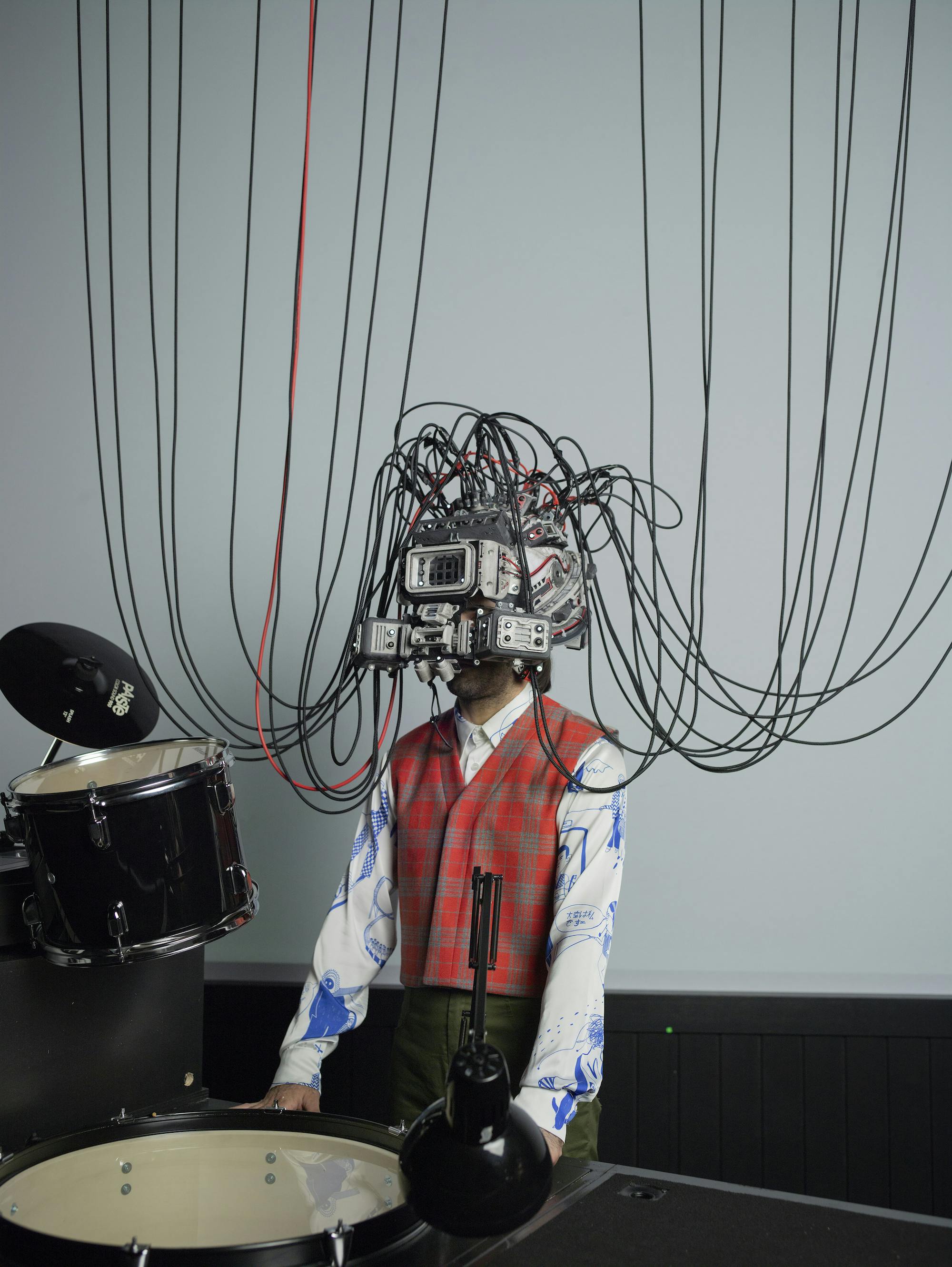
Firmamento, © Albert Pons
The interview is coming to an end yet, as we reflect on the profound meaning of an artistic practice that is as complex and alive as dance, I cannot help but pose one last question – a predictable parting shot that is also a bit daring as well. I cannot resist asking Marcos Morau what he believes to be the purpose of art. “Art for me,” he replies, setting off countless autobiographical bells in my mind, “has been a tool of salvation because life is not enough. Reality, what we define as reality, is in its own way dangerous because there is not just one type of reality; we live in different realities, all at once. I use art to change each time and to grow as an artist, as a translator of my time. In this sense, art is necessary. It is healthy.” Later, as I re-read his answer, I reflect that maybe it was worth it to risk the “big question”.
At the FOG Festival, La Veronal is presenting the performance Firmamento. Morau describes it as follows: “It’s about a boy who must become a man and, looking back, he must face many questions on life, memory, and education. These questions will ultimately follow you throughout your life, and it’s important to understand that, even in this sense, even from this perspective, art can represent a form of salvation.”